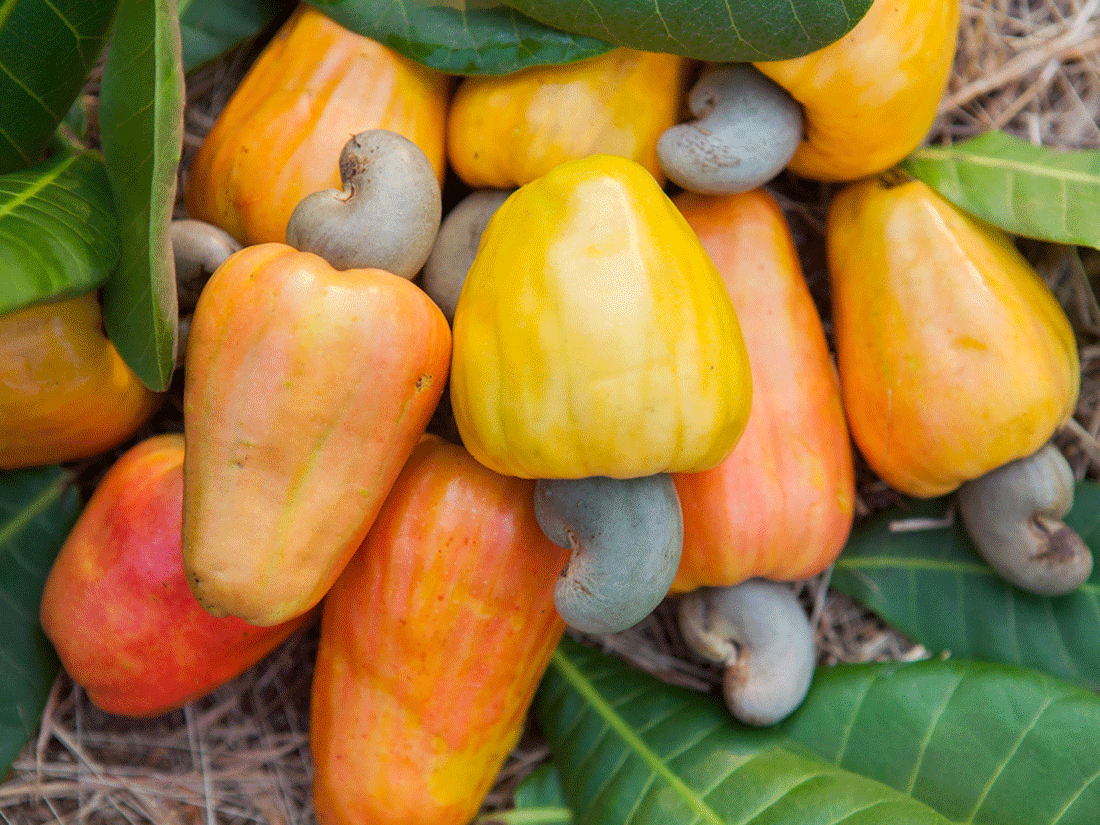Are cashew apples edible? Can I use them in other recipes?
Summary: Yes, cashew apples are edible and can be used in various recipes. They have a unique sweet-tart flavor and are rich in vitamin C.
Detailed answer:
Cashew apples are the fleshy, fruit-like structures that grow above cashew nuts. They are safe to eat and have a distinctive flavor profile, Sweet with a slightly tart undertone Juicy and refreshing.Nutritional benefits: High in vitamin C (5 times more than oranges) Contains antioxidants and minerals Other uses for cashew apples.
Juices and smoothies Jams and preserves Chutneys and sauces Candied snacks.
Culinary precautions - Some people may experience a slight allergic reaction The fruit is highly perishable, so consume quickly after harvesting
Besides cashews, are there any other ingredients used in feni?
Summary: Cashew feni primarily uses fermented cashew apple juice. No additional ingredients are typically used in traditional cashew feni production.
Detailed answer:
Main ingredient: Fermented cashew apple juice Natural fermentation process: Wild yeast present on cashew apples aids fermentation No additional yeast or sugar is added Water. Used during the distillation process Helps in achieving the desired alcohol content Traditional practice emphasizes purity of cashew flavor Avoids use of artificial additives or flavors Regional variations: Some producers may experiment with herbs or spices These are not considered traditional cashew feni.Are there different types of cashews used for feni production?
Summary: Cashew feni production typically uses local cashew varieties grown in Goa, India. There's no specific distinction between cashew types for feni-making.
Detailed answer:
Local Goan cashew varieties: Most commonly used for feni production Adapted to the region's climate and soil conditions Cashew apple characteristics: Size and juiciness vary among different trees Flavor profile can differ slightly No specific cashew breeding for feni: Unlike wine grapes, cashews aren't cultivated specifically for feni Importance of ripeness: Fully ripe cashew apples are preferred Ensures optimal sugar content for fermentation Seasonal variations: Quality of cashew apples can affect feni flavor Experienced producers adjust techniques accordinglyHow long does the cashew feni making process take?
Summary: The cashew feni making process typically takes about 4-6 weeks, from harvesting cashew apples to the final distillation and aging.
Detailed answer:
Harvesting (1-2 weeks): Cashew apples are collected during peak season (March to May)
Juice extraction (1-2 days): Apples are crushed and pressed to extract juice
Fermentation (7-10 days): Juice is fermented in large clay pots or cement tanks
First distillation (1-2 days): Fermented liquid is distilled to produce urrack
Second distillation (1-2 days): Urrack is redistilled to create cazulo (double-distilled feni)
Optional third distillation (1-2 days): For premium feni, a third distillation may be performed
Aging (2-4 weeks): Feni is aged in glass or wooden barrels to develop flavor
Is the copper pot used in the distillation process important? Why?
Summary: Yes, copper pots are crucial in feni distillation. They conduct heat evenly, remove sulfur compounds, and contribute to the unique flavor profile of feni.
Detailed answer:
Heat conduction: Copper distributes heat uniformly during distillation Prevents hot spots that could scorch the liquid.Sulfur compound removal: Copper reacts with and removes sulfur compounds Helps eliminate off-flavors and odors.
Flavor enhancement: Copper interacts with alcohol molecules Contributes to the development of complex flavours.
Traditional significance: Use of copper pots is deeply rooted in feni-making tradition Considered essential for authentic taste.
Maintenance considerations: Copper pots require regular cleaning and maintenance Proper care ensures longevity and consistent quality.
What does burying the distilled liquid under sand do for the feni?
Summary: Burying feni under sand is a traditional aging method. It helps maintain a consistent temperature, protects from light, and allows for slow maturation, enhancing flavor complexity.
Detailed answer:
Temperature regulation: Sand maintains a steady, cool temperature Prevents rapid temperature fluctuations that can affect flavor.
Light protection: Burial shields feni from sunlight Prevents potential degradation of flavor compounds.
Slow maturation: Consistent conditions allow for gradual flavor development Enhances smoothness and complexity of the feni.
Oxidation control: Limited exposure to air during aging Helps preserve the feni's unique aroma profile.
Traditional practice: Rooted in local wisdom and generations of experience Contributes to the authentic character of Goan feni.
Are there different flavors of cashew feni available?
Summary: Traditional cashew feni has a single flavor profile. However, some producers offer variations by aging in different woods or adding natural flavors post-distillation.
Detailed answer:
Traditional cashew feni: Single, distinct flavor profile Characterized by fruity, slightly sweet notes.Wood-aged variations: Aged in different types of wood barrels Can impart subtle flavor nuances
Infused feni: Some producers experiment with natural flavor infusions Examples include spices, herbs, or fruit essences
Strength variations: Different alcohol content levels available Affects intensity of flavor and aroma Regional differences: Slight variations in taste based on production location Influenced by local cashew varieties and techniques
How does double or triple distillation affect the final product?
Summary: Double or triple distillation increases alcohol content, refines flavor, and enhances smoothness. It results in a purer, more premium feni with distinct characteristics.
Detailed answer:
Alcohol content: Increases with each distillation Single: 15-20% ABV, Double: 40-42% ABV, Triple: Up to 45% ABVFlavor refinement: Removes harsher volatile compounds Results in a cleaner, more focused cashew flavor
Smoothness: Multiple distillations create a smoother mouthfeel Reduces the "burn" associated with lower-quality spirits
Purity: Eliminates more impurities with each distillation Produces a clearer, more transparent liquid
Premium quality: Triple-distilled feni is often considered top-tier Commands higher prices in the market
Is homemade cashew feni safe to drink?
Summary: Homemade cashew feni can be safe if produced with proper knowledge and hygiene. However, it carries risks of contamination and inconsistent alcohol content, making commercial feni safer.
Detailed answer:
Potential risks: Bacterial contamination during fermentation Improper distillation leading to methanol production.Safety considerations: Cleanliness of equipment and ingredients Proper fermentation and distillation temperatures.
Alcohol content control: Difficult to regulate in homemade versions May result in unexpectedly high alcohol levels.
Legal considerations: Home distillation is illegal in many jurisdictions Check local laws before attempting
Recommendation: Purchase feni from reputable commercial producers Ensures quality control and safety standards.
Conclusion
Cashew feni is a unique and traditional spirit deeply rooted in Goan culture. Its production involves a meticulous process of fermenting and distilling cashew apple juice, often using time-honored methods like copper pot distillation and sand burial aging. While variations exist, the focus remains on preserving the authentic cashew flavor. For safety and quality assurance, it's recommended to enjoy commercially produced feni rather than attempting homemade versions. As you explore the world of cashew feni, remember to appreciate its rich history and the craftsmanship behind each bottle.














